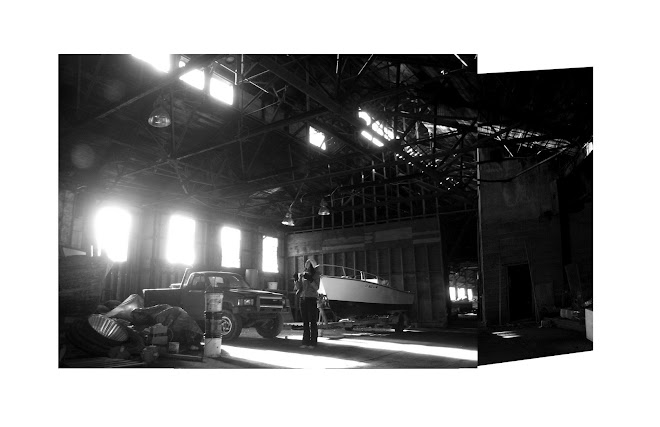-draft 2.0-
PROPOSAL
A study of places of collaboration in Copehagen, Denmark, and Stuttgart, Germany.
OBJECTIVE
This proposal is in support of travel through northern Europe to study progressive and archetypal places of collaboration. Acknowledging “collaboration” as both a human activity and an architectural “manipulation”, the investigation is qualified in terms of active relationships, of modes of exchange, of interface. These relationships include the familiar human to human and the industrial machine to human. Another layer of relationship investigated is that among program types, that is, the collaboration, or in this case perhaps “overlap”, of conceptual boundaries of typical isolated realms, such as industry and education, or generation and consumption.
The documentation of site visits and interviews will produce a robust analysis of a precedent set beyond simply that of typology, one that addresses methodology and the nature of a framed human engagement in constructed places. Documentation will be collected through field sketching, photography, and videography.
PROPOSED ITINERARY
The politics and economics of Northern Europe have supported an accelerated advancement of both the technical and social praxes of collaboration. There is an extremely long list of potential places and cities to visit. This proposed itinerary prioritizes a practical few, with the expectation that as conditions of the research develop, the list may also subtly evolve (within the constraints of the proposal).
The itinerary will consist of two phases. The first is to include a multi-day extended study of Copenhagen, Denmark. Copenhagen continues to develop a civic culture that fosters a consciousness of collaboration as groups of people, as well as a human collaboration with resources. Copenhagen supports both public and private space to support this cultural priority.
The second phase will feature an extended study of Stuttgart, Germany. Germany, too, has encouraged aggressive study and implementation of technical collaboration innovation, and the state of Baden-Württemberg in particular has attracted a concentration of fuel cell developers and producers. A variety of facilities for research and manufacturing exemplify these public initiatives.
-see appendix i for elaborated itinerary-
RELATION TO CURRENT SCHOLARLY ACTIVITIES
This research will be conducted as an integral component to my current thesis for the degree of Master of Architecture from the University of Maryland: “A Topological Study of an Architecture of Empowerment”. The programmatic vehicle of this study is a proposed Global Fuel Cell Research Center situated among a former riverside industrial complex from the early 1800’s. As a public institution, the nature of research, testing, and education is concerned with shared knowledge, specifically engaging the industry and research with citizens in a mutually constructive manner. The nature of fuel cell technology requires research in a variety of scalar conditions, from the individual, to a nesting, to a network. Finally, the perspective a topological methodology will assume is one where there is the potential for all systems, both human and man-made, to embody a logic of continuity, of folded experiences, of a collaboration of knowledge, place, form, and space.
university of maryland school of architecture master of architecture program
2.27.2008
Subscribe to:
Post Comments (Atom)

No comments:
Post a Comment